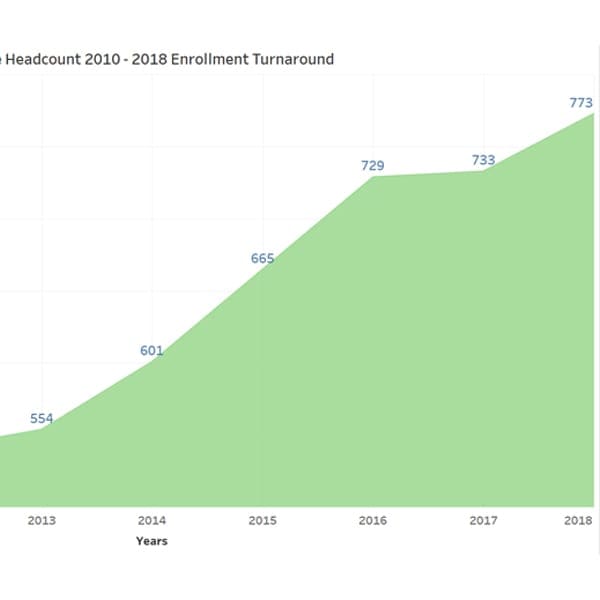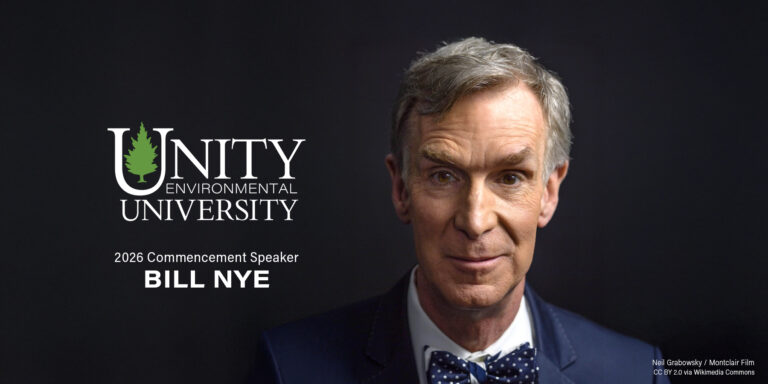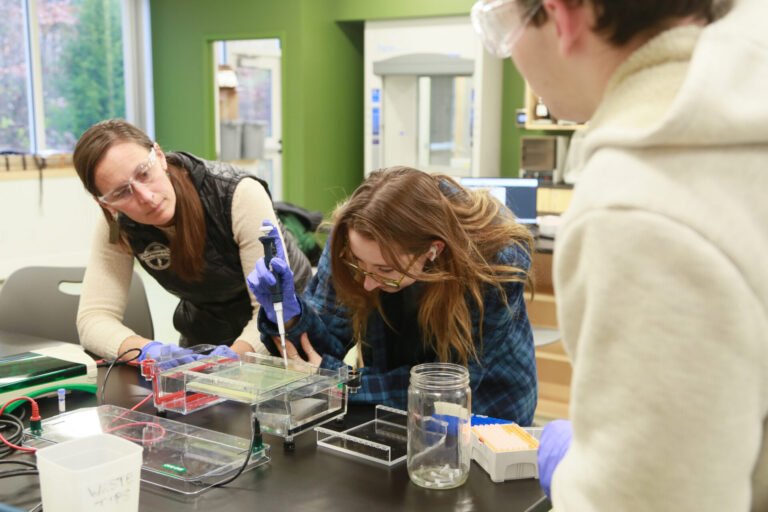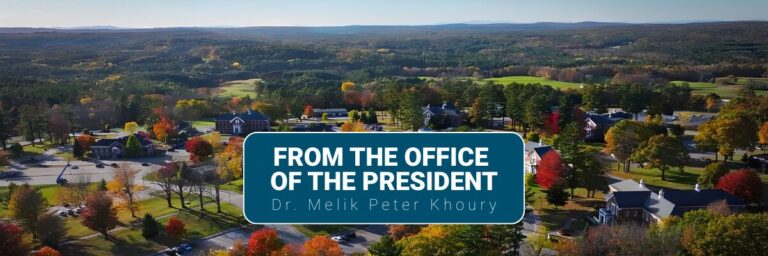
The news for private institutions of higher education hasn’t been good, as several schools in recent months have shuttered their doors, or are struggling to draw in and keep students, as indicated in the August 11 article in The Boston Globe.
Though the trend for many colleges is sloping downward, Unity College has increased its student enrollment in fall 2018 for the sixth consecutive year, growing 43 percent from a modern-era low of 540 in 2012 to the record-breaking count of 773 this fall. The previous record was 2017’s fall enrollment of 733.
Despite Unity College’s continued success over the last several years, the outlook was not always so positive. The college nearly closed in the 1990s and struggled to stabilize enrollment throughout the early 2000s, but a precipitous enrollment decline between 2011-2012 signaled to the college’s board of trustees that a dramatically different approach to leadership was necessary.

“We’ve all seen the news, and it kills me to see private colleges close, merge, or downsize, one after another,” said Melik Peter Khoury, President of Unity College. “Not only because that could very easily have been us, but because every college brings something unique in service to society. Just as in ecological systems, the loss of diversity in our schools is a loss for us all.”
“At Unity College, we are trying to create a new model for success that other colleges can adopt and adapt to fit their own needs,” Dr. Khoury continued. “We’re working to get more responsive to the needs of society, to find new audiences that need America’s Environmental College, and to bring our made in Maine education and services to them, no matter where they are.”
One way that Unity College has been reaching new audiences is through its online programs. It has offered online master’s programs since 2016, and classes for the new online bachelor’s degree completion program will begin in October. Created specifically for nontraditional adult learners, the curriculum was designed in partnership with industry leaders to help students develop the skills for which employers are looking. Degrees include Environmental Studies, Environmental Criminal Justice, Sustainable Business, and Wildlife Conservation.
“Our online master’s program has exceeded expectations in terms of enrollment since we launched it, and we’re certainly hoping to see that level of success with our online bachelor’s programs,” said Dr. Amy Arnett, Chief Distance Education Officer at Unity College. “These programs are tailored to adult-learners who require flexibility, enabling people like working adults to earn a Unity College degree, even if they live halfway across the world.”
Not only did the College open its doors to new audiences through Distance Education, it is also working to redesign and redefine the early college experience for residential students through its First Two Years initiative, scheduled for a fall 2020 launch. Along with helping students achieve personal and professional goals, the program is also expected to improve even more on the College’s admirable 73 percent first-to-second-year retention rate.
“This is a truly ambitious undertaking that will shape the future for Unity College and our students,” said Dr. Khoury. “The goal will be to create an even more immersive and intensive, yet flexible, curriculum for students that will be unique to Unity College, but may also help reimagine the way higher education is conducted throughout the country. It’s very exciting, and we’re working hard toward the 2020 launch.”
“Investment in our flagship residential programs here in Unity has been good for our students and good for Maine,” said Chief Advancement Officer, Erica Hutchinson. “Three-quarters of our students are from out of state. As there are fewer and fewer young people graduating high school in Maine, it’s important that Unity has a strong national draw. It also helps us achieve our mission as America’s Environmental College.”
“Unity College is working to refocus the attention of higher education back on the students, where it belongs,” said Dr. Erika Latty, Unity College Chief Academic Officer. “Undergraduate research opportunities, internships, partnerships, real-world sustainable enterprises — these are the immersive learning experiences that make the difference for Unity students.”
For its commitment to reimagining higher education, Unity College was named No. 3 (tie) for innovation by the 56 peer colleges in U.S. News and World Report’s north regional school category. In spring of 2018, the Association of Governing Boards, higher education’s trustee organization, named Unity College one of five recipients of the John W. Nason Award for innovation.
For more on Unity College Distance Education programs, visit unity.edu.



